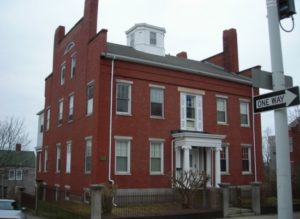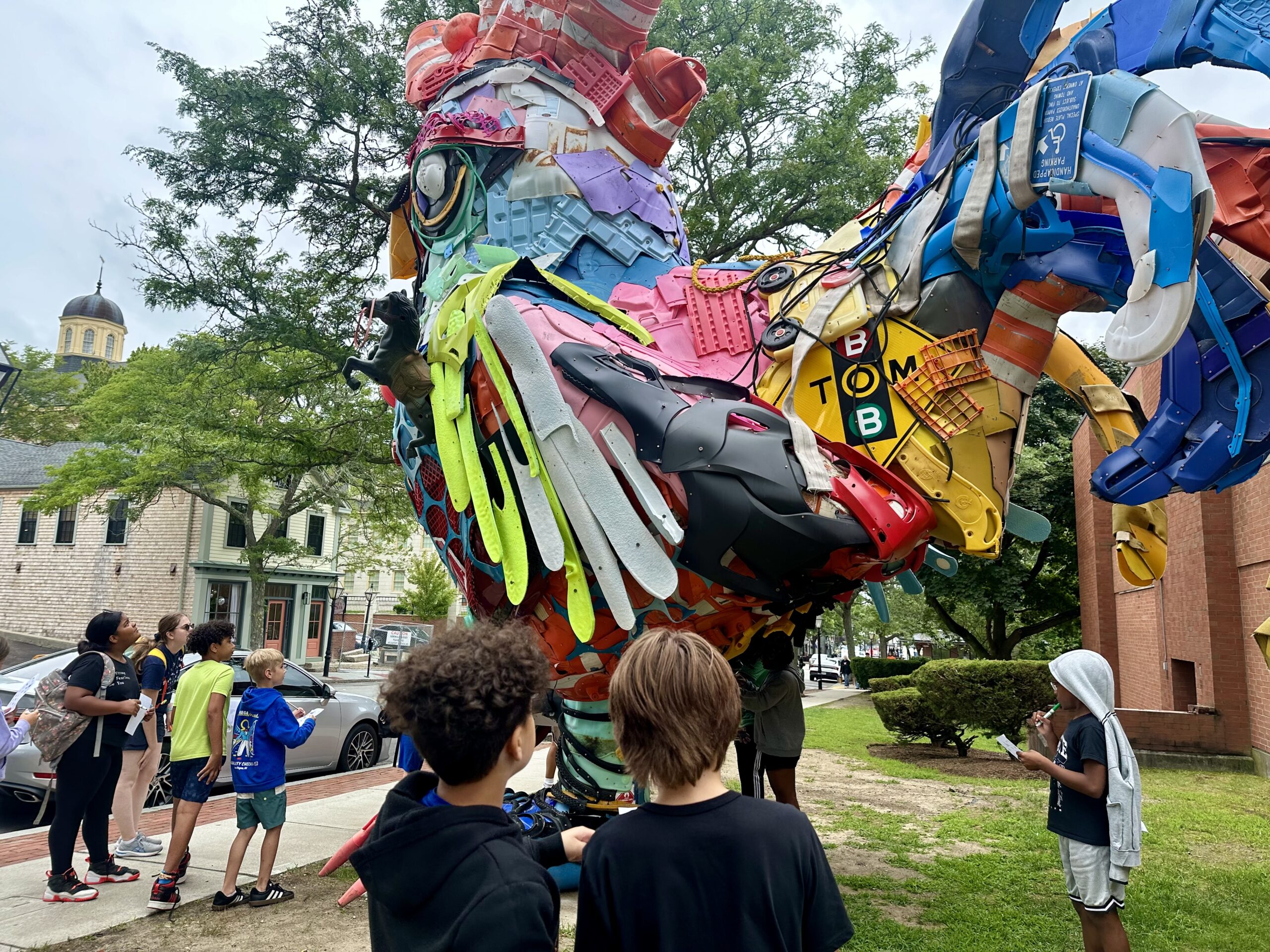

David Coffin House
34 South Sixth Street, New Bedford, MA
David Coffin operated a candleworks and a “tryhouse” where blubber was rendered into oil, and owned shares in whaling vessels. William C. Coffin, his nephew, lived most of his life in this house; he became one of the city’s most active abolitionists. William supported the Boston Vigilance committee, which assisted formerly enslaved people, and the abolitionist newspaper The Liberator. In 1841, William encouraged Frederick Douglass to speak at an anti-slavery convention in Nantucket. Frederick Douglass described the incident in his book Narrative of the Life of Frederick Douglass, an American Slave: “…while attending an anti-slavery convention at Nantucket, on the 11th of August, 1841, I felt strongly moved to speak, and was at the same time much urged to do so by Mr. William C. Coffin, a gentleman who had heard me speak in the colored people’s meeting at New Bedford.”
Local history and self-guided tours are presented in collaboration with the New Bedford Historical Society and the New Bedford Whaling National Historical Park. Visitors can also access interactive digital components, VR tours, and videos originally created for the New Bedford Historical Society and UMass Dartmouth’s exhibition, Black Spaces Matter: Celebrating New Bedford’s Abolition Row.
This exhibition will be shown free and open to the public in downtown New Bedford outdoors at the YMCA green space on Union Street, between N. 2nd Street and N. Water Street from June 16 to September 12.
CREDITS
The Black Spaces Matter project is collaboration between UMass Dartmouth College of Visual and Performing Arts students and faculty, local New Bedford experts, and the New Bedford Historical Society.
Black Spaces Matter was exhibited from November 19, 2017 — January 29, 2018 at the Boston Architectural College’s McCormack Gallery, 320 Newbury St. Boston, MA, and from November 8, 2018 — January 30, 2019 at UMass Dartmouth’s University Gallery, 715 Purchase St. New Bedford, MA 02740.
SUPPORT
Black Spaces Matter is supported by New Bedford Historical Society, Creative Economy Fund from the Office of the UMass President, UMass Dartmouth Provost Office, Perkins + Will Associates, Rotch–Jones–Duff House and Garden Museum, Spinner Publications, New Bedford Whaling National Historical Park.
PARTICIPANTS
Consultant: Lee Blake | Lead curator: Pamela Karimi | Architectural renderings, model production, and maps: Pedram Karimi and students in Architecture and Sustainability class | Film, animation, and digital curation: Don Burton | Artistic representations: Michael Swartz | Consultants for the Documentaries: Janine da Silva, Ann Marie Lopes | Advertisement and graphic design: Ziddi Msangi, Racsa Soun, Vasco Pedro and students in Community Engagement Design studio | Digital stations: Michael Swartz, Don Burton, Ben Guan-Kennedy, and Merri Cyr | Production Manager: Jennifer McGrory | Curatorial assistance: CVPA students, Cynthia Raposa, Mark Walker, and gallery director, Viera Levitt.
Events

Public Art Curator’s Tour
Public Art Curator’s Tour 4:30 – 5:15pm Take a walk through the culturally rich historic downtown New Bedford to view 4 contemporary sculptures, including a new interactive AI sculpture by architect & designer, Mona Ghandi, called “Mood-Vironment.” This public art trail led by Executive Director, Lindsay Mis will cover approximately 1 mile of walking. Tour
